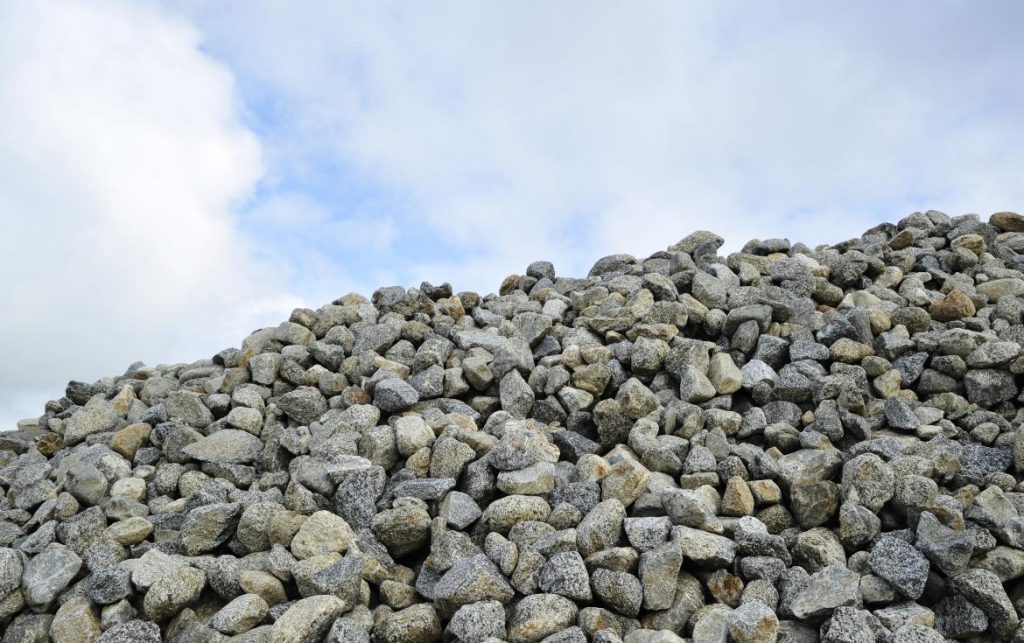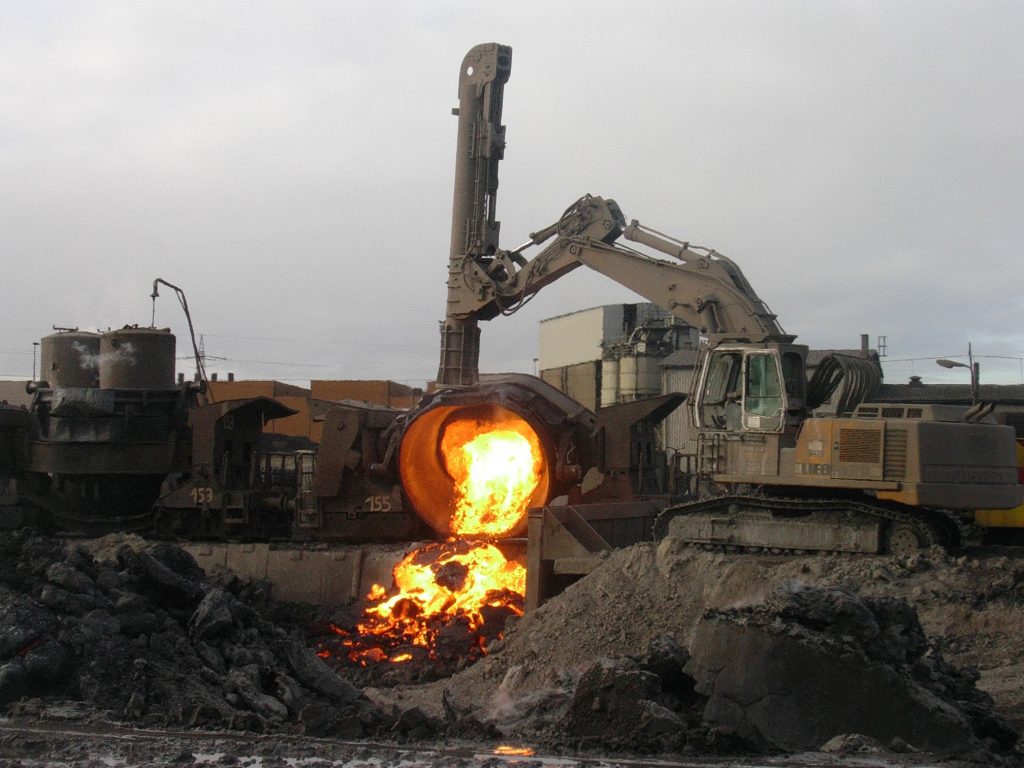Asphalt, blacktop, pavement. It is everywhere. In the U.S. alone, there are over 2.7 million miles of paved roads, 94 percent of which is surfaced with asphalt. One of the ingredients of asphalt is steel slag, a by-product of the steel and iron production processes. Steelmakers like POSCO are putting the sustainable, recycled material to use to make roads stronger and safer.
What are Asphalt Roads Made of?
Asphalt roads are made of a mixture of aggregates, binders and fillers. The aggregates are typically iron and/or steel slag, sand, gravel or crushed rock, and they are bound together with asphalt itself, which is a bitumen.
Asphalt comes from natural deposits, or more commonly, as a by-product of the petroleum industry. It is a prevalent material for waterproofing, caulking and preserving, and is now most frequently used for road surfaces.
The iron and steel slag used as aggregates for asphalt roads are iron and steel by-products. Steel slag is residue from the steelmaking process, made of minerals like silica, alumina and titanium from iron sand, and combinations of calcium and magnesium oxides. During the steelmaking process, slags float on top of the molten iron, forming a barrier against oxygen and maintaining the internal temperature.
In road construction, these are the preferred aggregates as they harden well, enabling a thinner layer of pavement than what can be achieved with crushed stone aggregates. Slag is also very hardy, resistant to both weather and wear.

Steel slag is a sustainable aggregate for asphalt road production. (Source: National Slag Association)
According to the Washington State Department of Transportation’s Use of Steel Slag Aggregate in Pavements report in 2015, a high iron oxide content in steel slag aggregates creates pavement that is both hard and dense, making it a superior choice over natural aggregates such as rocks in creating hot mix asphalt.
Also, when used in bituminous pavements, slag offers the advantages of high skid-resistance, stability, resistance to rutting, fatigue resistance, deformation resistance, high cohesive strength and compatibility with typical asphalt binders. Steel slag is also used as a base course material, the material under the surface layer of an asphalt road, track or surface.
The Environmental Benefits of Steel and Steel Slag
Base course material containing iron and steel slag as well as asphalt mixture containing iron and steel slag were designated as a procurement item under the Green Procurement Law. These materials are recognized as items with environmental benefits. The use of slag minimizes environmental impact as it saves energy and conserves resources.
Steelmakers need to actively find ways to reuse steel by-products to reduce their overall waste. For example, POSCO is dedicated to reusing by-products of steel making as it has a strong commitment to environmentally friendly practices. In 2016, POSCO recycled 98.4 percent of its steelworks-generated by-products, 77 percent of which was blast furnace slag and steelmaking slag.
In fact, 88 percent of POSCO’s blast furnace slag is turned into granulated blast furnace slag for cement material. POSCO carefully tests all of its steel slag products before clearing them for reuse, ensuring that every market item is suitable for its intended application.

Hot slag, or steel waste, is poured into piles to cool before being used for asphalt road construction.(Source: Fractum)
While POSCO works to improve its recycling capabilities, manufacturing and other industries are starting to see the benefits of steel and iron slag. These materials are being used everywhere, from rail ballast to artificial ocean reefs.
Steel slag is far from industrial waste, as POSCO’s efforts show. This steelmaking by-product has serious potential, now and in the future, and is a highly versatile, easily-used material for road making and other applications.
Demand for sustainable materials is on the rise in flourishing industries such as construction and manufacturing. Steelmakers like POSCO who put by-products to full use and invest in research to apply them to different industries will share the economic benefits and play a vital role towards greener business practices in the coming future.
- artificial ocean reefs
- Asphalt
- Asphalt residue
- asphalt road
- Asphalt Roads
- asphalt slag
- asphalt sustainability
- blast furnace
- construction
- Green Procurement Law
- iron and steel
- material
- National Slag Association
- POSCO
- production
- resistance
- road slag
- slag
- Steel Slag
- Steel Slag Aggregate in Pavements
- steel slag sustainability
- steelmaking process
- sustainable
- Use of Steel Slag Aggregate in Pavements
- Washington State Department of Transportation
